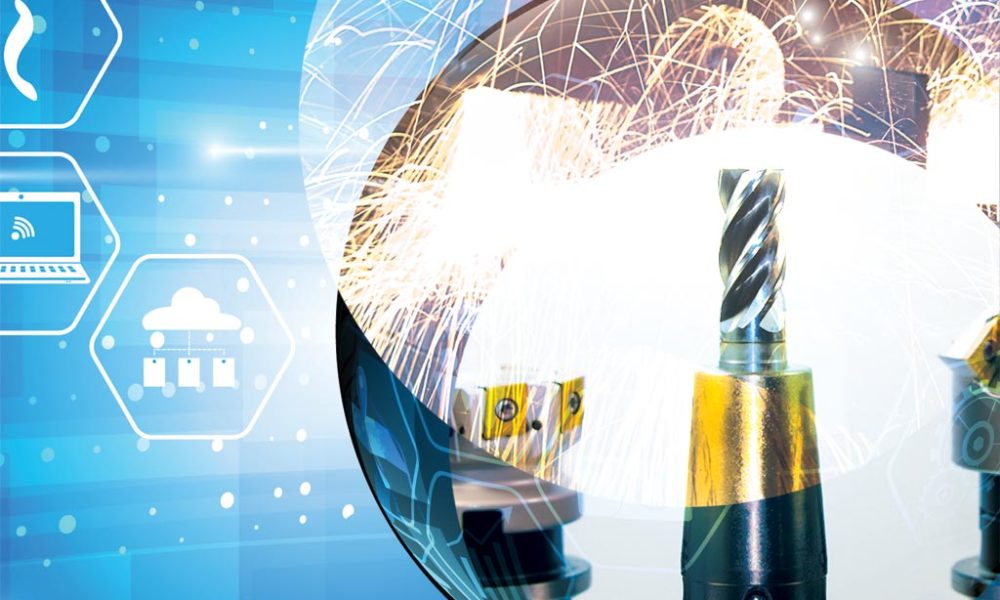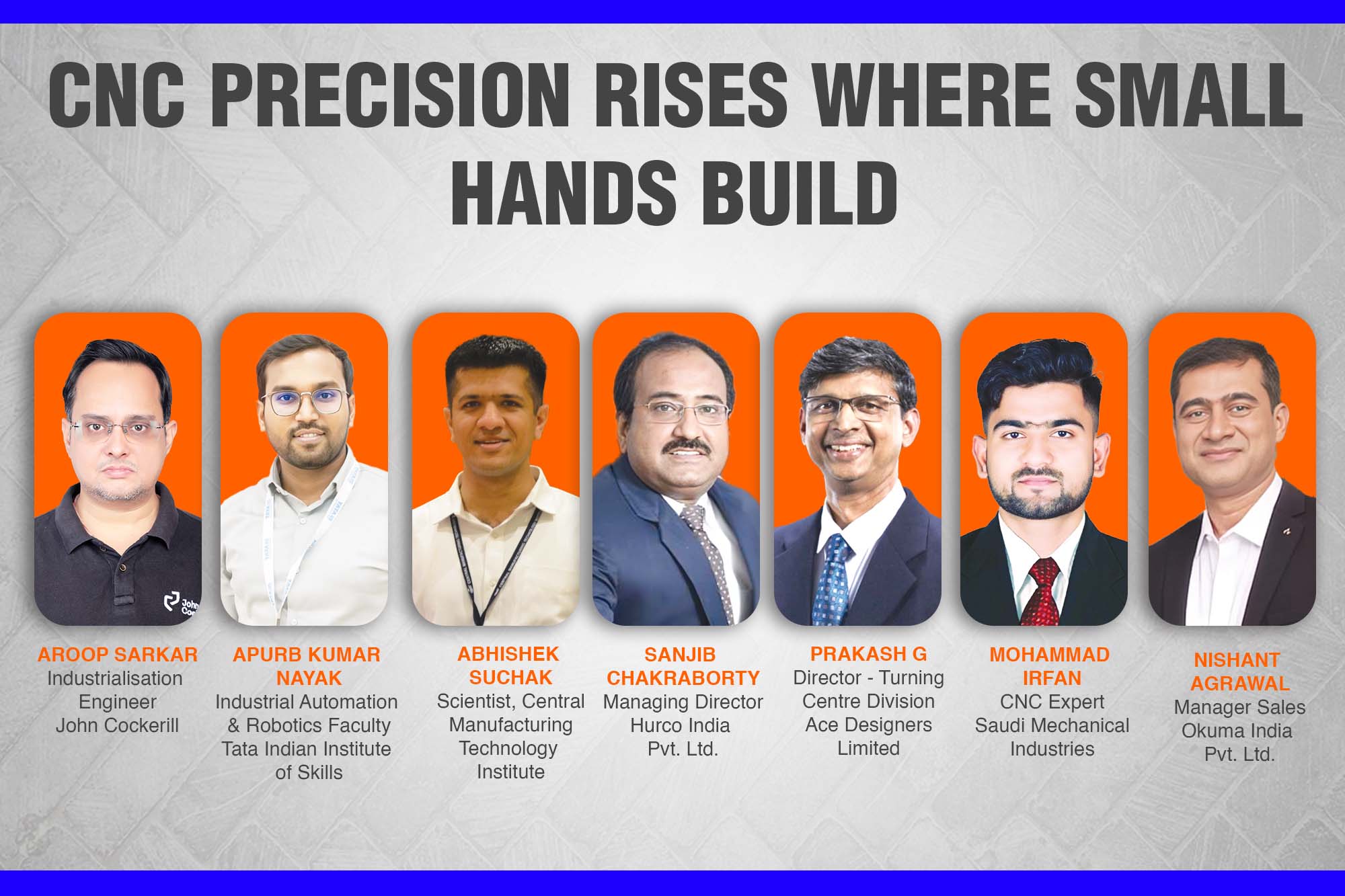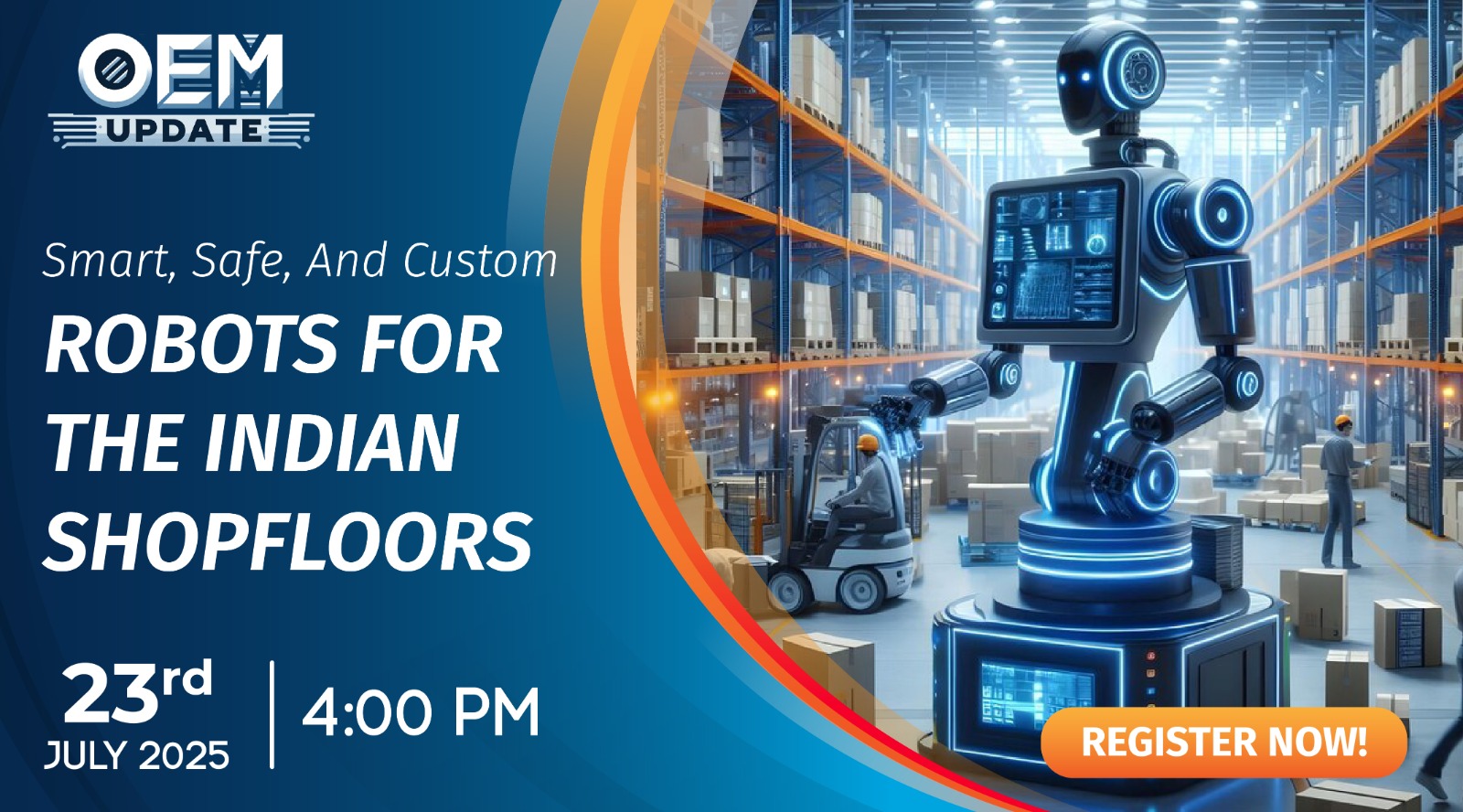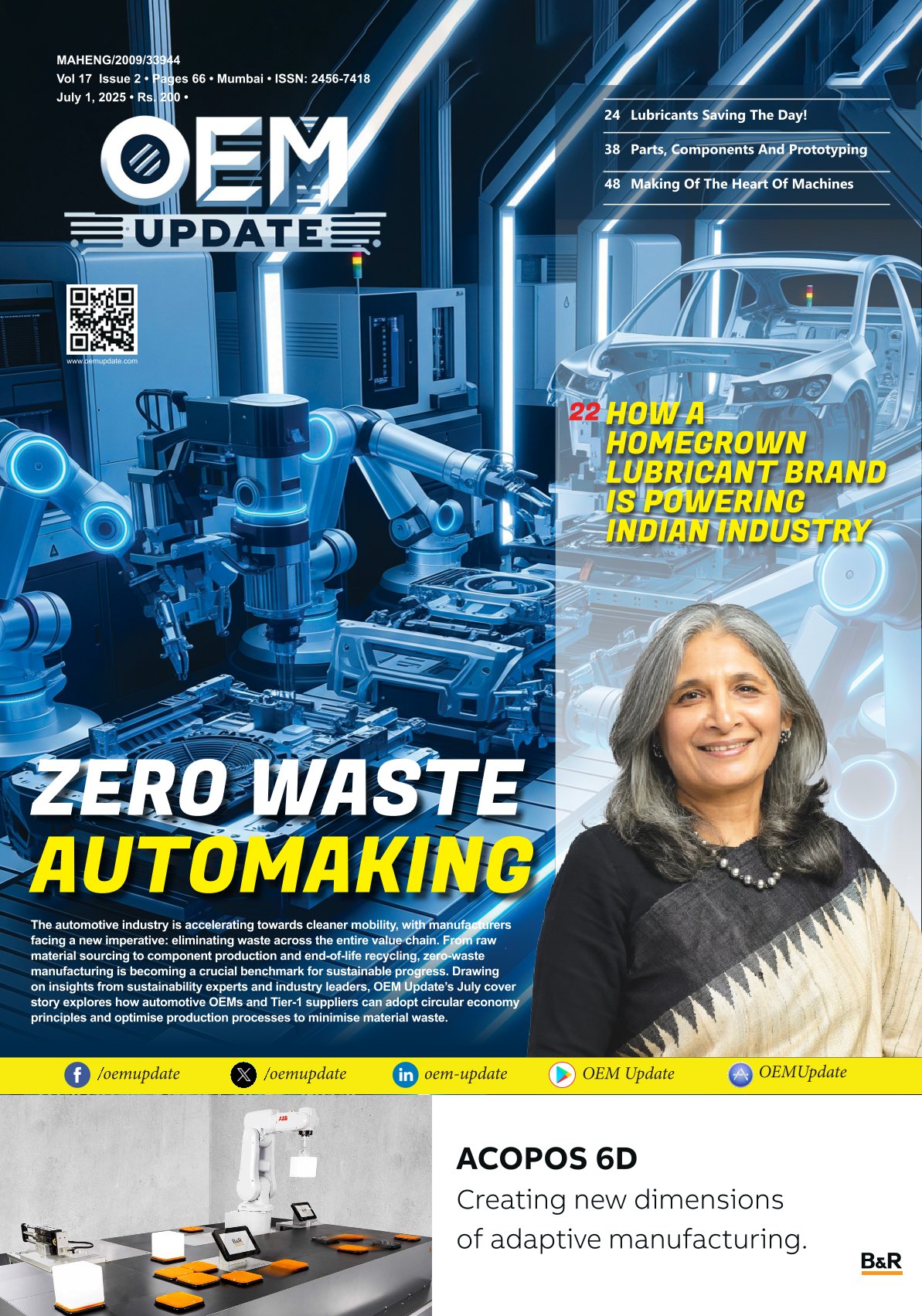Rise of the Machine Tools
By OEM Update Editorial September 11, 2017 3:33 pm IST
An in-depth analysis on how IoT, robotics is driving the machine tools segment.
“Industry 4.0” and “Smart Manufacturing” have been the buzzword for a few years now. Robotics and Industrial Internet of Things (IIOT) are expected to revolutionise entire manufacturing industry and transform everything inside a factory. Machine tool industry which is a strategic pillar of manufacturing business has also managed to embrace this ongoing revolution pretty well. Presenting an in-depth analysis on how IoT, robotics is driving the machine tools segment.
Experiencing a fundamental change
Ever since the most critical issues for executives in this field have been the continuous quality improvement, higher productivity and flexible operations which all are resultant of extensive manual interventions in processes, interrupted flow of data and lack of process visibility. “With the dawn of digitalisation and automation brought in by IIOT and robotics, production environment is experiencing many fundamental changes. Companies are making these changes in a step by step fashion by using smart manufacturing technologies which are an amalgamation of robust hardware like robots and smart tooling with intelligent software’s managing the hardware. These changes are made in two different phases wherein phase one, manufacturing data throughout individual machines, plants and across enterprises is integrated which facilitates significant and immediate improvements in costs,” says Kunal Pruthi, Consultant – Solutions & Business Development, The Hi-Tech Robotic Systemz Ltd.
He adds, “Further, in phase two, this data is paired with advanced analytics which will create manufacturing intelligence that enables variable operating speeds, flexible manufacturing, optimal production rates and quicker product customisation. These improvements create a real-time flow of trusted information which allows purposeful diagnostics, yielding better productivity and value for the user.”
Big data and AI will revolutionise the business scene
Pruthi informs, “All these improvements are made possible by IIOT and robotics. But this is just the start where we have begun to tap into the many facets of Industry 4.0. With Big data and AI coming in the Industrial scene we will further witness drastic transformations in current processes where production systems will be highly predictable, adaptive and self-optimising.”
Industry 4.0: Where machines are equipped with self sufficient capabilities
“As per recent scenario, we are arriving at the level of industry 4.0 where the machines are equipped with self sufficient capabilities. Tools are installed with self intuitive decision making backed by Artificial Intelligence. We are leading towards the edge where the human effort will turn into mere just commands and rest will be taken care by smart, in fact intelligent machine tools. The human efforts are being extensively reduced by the robotics and new age technology IoT. The robotics technology won’t be considered any recent as we have been actively experimenting the same since eras. Though it seems like the efforts we put through is reflecting on the surface. On the other hand, ‘Internet of Things’ which can essentially referred as ‘Internet of Tools’ when it comes to our sector says,” Maulik Patel, Executive Director, Sahajanand Laser Technology Ltd.
Patel claims, “At our SLTL Research and Development unit, we have been actively experimenting to converge aforementioned technologies into our machines. As we as an organisation have firm faith in technological advancement and extend that advancement to the industry, to the globe. So far, we have been applied automation in many of our machines and the experiments are ongoing to make it adaptable with ‘IoT’.”
Need to map each critical and vital component
According to Vivek Nanivadekar, Executive Director, Fibro India Precision Products Pvt Ltd, “Before we apply IoT to any industrial product we need to map each critical and vital component`s characteristics which goes in to assembly of that product. This will become the input to the development of IoT of that product. The mapping of characteristic of the component will be a quite long drawn process. In FIBRO Germany, we have identified the rotary table for the IoT implementation. Nanivadekar informs, “For last more than a year we are in a process of mapping of the rise in temperature, its effect on wear and tear of the components and at the end its effect on the performance of the table leading to the total failure. So accordingly, the signals will be generated in advance to take the corrective action. The corrective action will depend upon the type of material, its physical parameters and the lead time required procuring the replacement.”
Robotics: The need of the hour
Nanivadekar opines, “Robotics is very common in auto sector, particularly in welding and assembly and material handling. But, as of now robotics is not much used in manufacturing of machine tools. But the users of machine tools do use the robotics for pick and place operation, synchronised with the machining cycle time. Robotics is the need of the hour as it can perform 24/7 without losing the efficiency and precision of the operation. So as a matter of fact, the robotics is not at all driving the machine tool industry.”
IOT enables integration of smart connected machines
Ram Grover, Managing Director, Elesa and Ganter India Pvt Ltd, says, “Rapid technological change is transforming the production of goods and services throughout much of the global economy. This transformation will accelerate exponentially, as we are still only in the early stages of the curve.”
Sharing his viewpoint on how robotics is driving the machine tools segment, T.P Sridhar, CEO – Ace Designers Ltd, says, “In the recent years, due to rising man power costs and more so the non-availability of skilled man power the need for automated solutions has been strongly felt. While initially, the organisations opted for simple forms of automation like auto loading and unloading, we have seen a rising demand for more comprehensive automation requiring minimal human intervention. Machine tool builders are now offering automation solutions consisting of gantry systems, robotics and combinations of both.”
Sridhar opines, “It is generally felt that the robot ready machines are easier to offer than the gantry ready machines. Since robots are available with various load carrying capacities and reach, the possibility of handling multiple machines with single robot becomes practical and this reduces the automation cost per machine. Robots are also used for enabling additional operations like deburring, washing and interfacing with measurement devices in addition to machine loading function.”
Sridhar observes that the machine tool segment has realised the potential of robotics interface with their products and the machines are being made robot ready. The use of robot brings in the requirements of additional features on the machine like automatic door, configuring the cell to suit multiple machines, input and output flow configurations, safety features on the machines in addition to the safety of the man entering the cell.
IOT enables visibility and enterprise connectivity for machine tools
In case of how IoT is driving the machine tools segment, Sridhar comments, “IOT offers the promise of enabling visibility and enterprise connectivity for machine tools. Using this, new workflows may be created to drive vastly higher levels of productivity, uptime, serviceability and outcomes based models.”
Appropriate sensors and feedback systems can also connect experts anywhere in the field to diagnose, remedy and provide horizontal deployment of solutions across like situations, shrinking the service cycle. Moreover, Sridhar informs, “Using data from IOT, comprehensive range of preventive, predictive, prescriptive and cognitive maintenance options may be developed to improve predictability and performance of machines and user outcomes.”
An industrial IoT solution lies in improved decision making ability
“IoT (Internet of Things), Industrial 4.0 or smart manufacturing, the concept has taken the manufacturing world by storm. It is often being termed as the next industrial revolution, and rightly so, as it has the potential to fundamentally reconfigures the industry. The key advantage for manufacturers implementing Industrial IoT solution lies in improved decision making ability. Manufacturing equipment connected to a web-based network generates data, which upon analysis can aid manufacturers in making timely and effective choices,” says Ajay Gurjar, Dy. COO & Head (Sales & Marketing), Yaskawa India Pvt. Ltd, Robotic Division.
Gurjar adds, “Individually operating industrial devices such as robots at sites of manufacturing and other work, it is also possible to use a network to manage the devices as a system from a remote location in an effort to further raise productivity. The linking of industrial devices into a network is being pushed by the latest trends, the representative example of which is Industry 4.0, and Yaskawa is also working on the construction of systems that utilise networks.”
Robot IOT: Helps industry to get product information
Gurjar opines, “In the same content, robot being a key for flexible manufacturing system, robot IOT help industry to get product information, parts maintenance information, degrade and failure diagnosis which helps machine tool industry to provide less down time die to online monitoring and diagnosis.”
In conclusion, Gurjar says, “Every step in the implementation of the Industrial IoT or Industry 4.0 has to be evaluated in terms of the decisions it influences. Linking each step to the value of better decisions that result must be the basis for prioritising them and justifying them economically.”
Cookie Consent
We use cookies to personalize your experience. By continuing to visit this website you agree to our Terms & Conditions, Privacy Policy and Cookie Policy.























